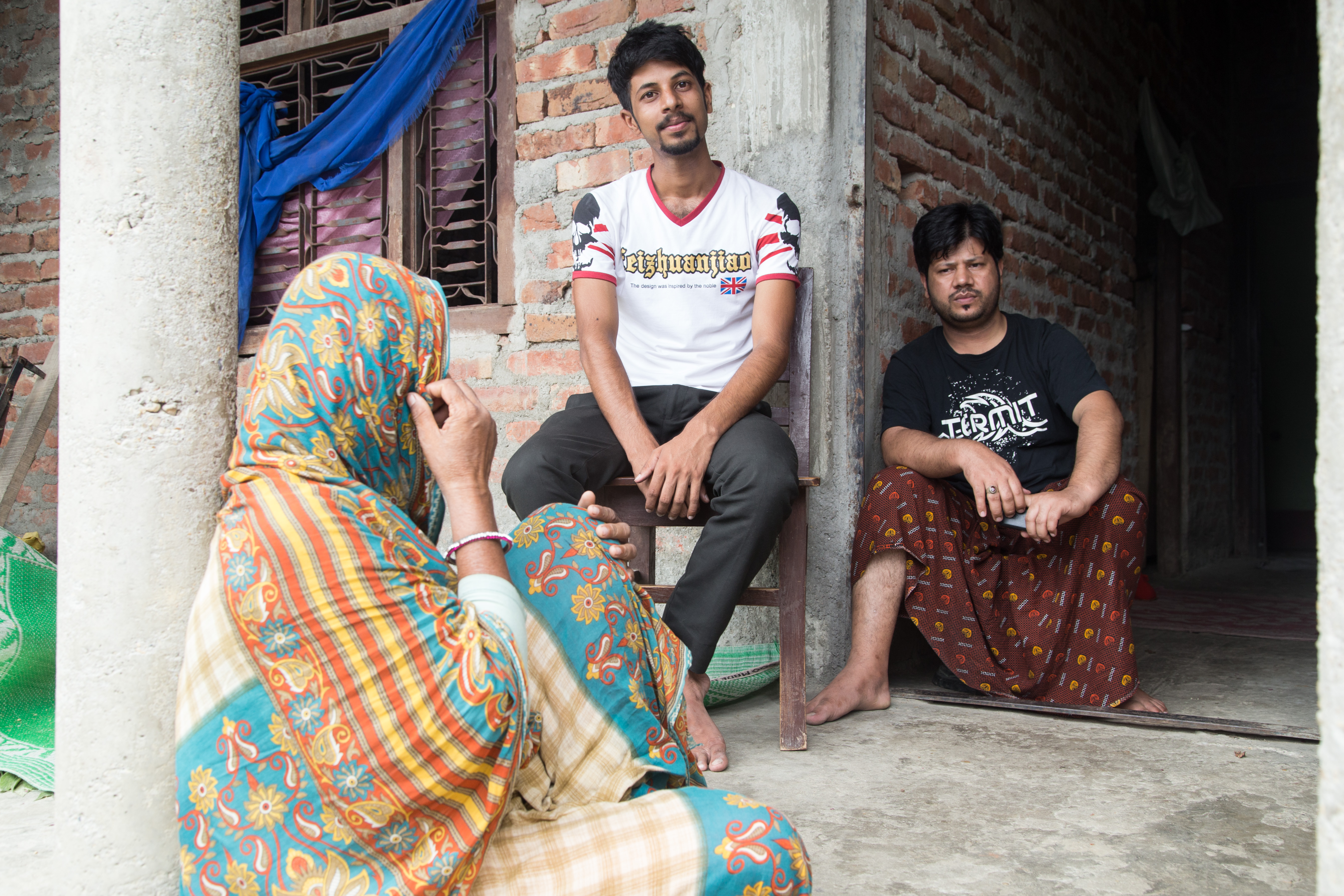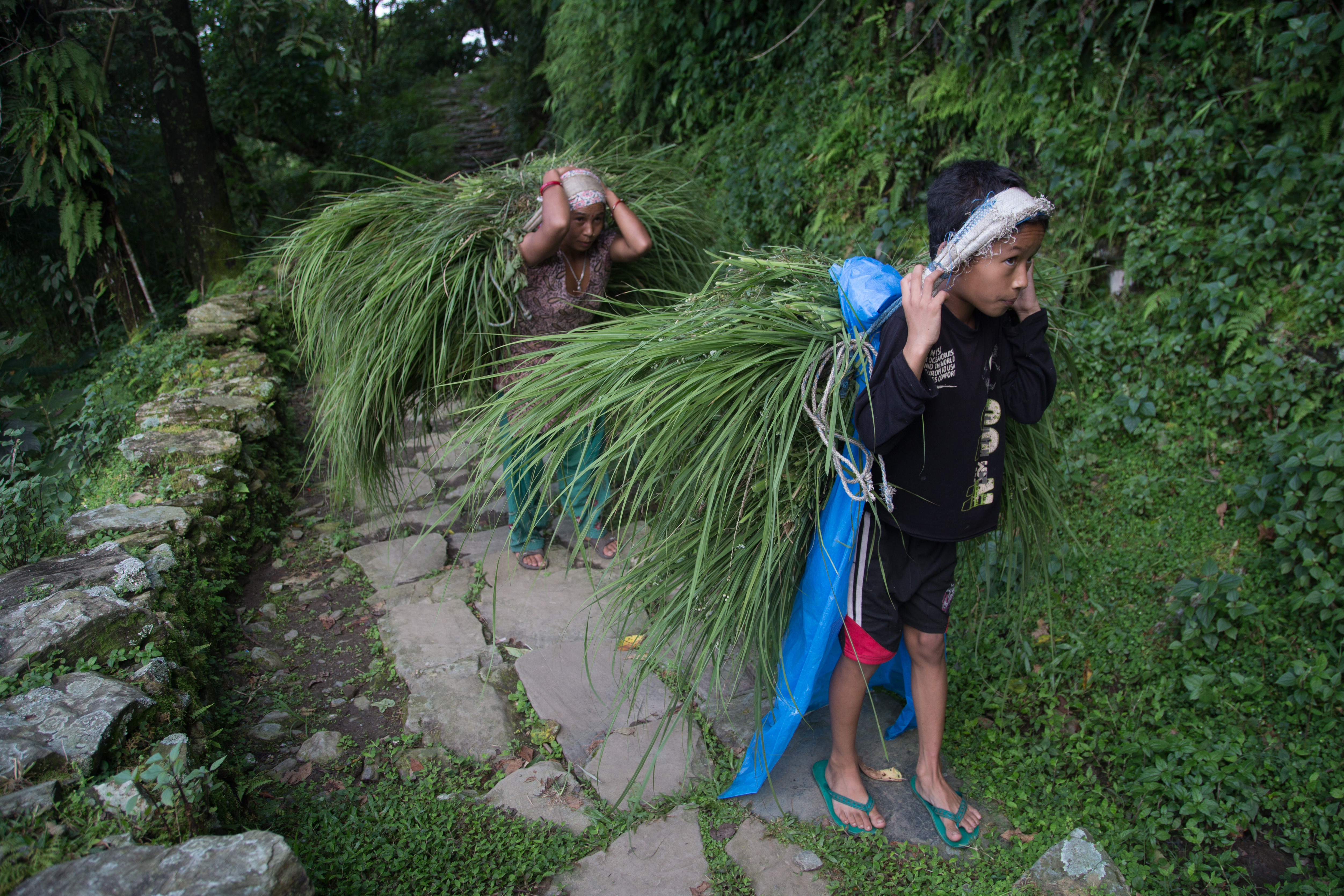
Thousands of students from all over Nepal come to Kathmandu ever year, carrying with them the aspirations of their parents. Some come from huts and cities of the scorching Terai belt, some from the widely spread communities nestled on slopes and tops of never-ending hills, and some from the remotest parts of the Himalayan country accessible only by foot.
Twenty-year-old Mohammad Alladin Ali, who was a teenager when he left his hometown, Mahendranagar, arrived in Kathmandu a couple of years ago for his +2 level education, equivalent to the junior and senior year of high school in the States. Ali was enrolled at Pentagon College in the hotel management department where he was chasing his dream of becoming a chef. However, merely months after the completion of his +2, Ali's dream is already on hold.
On a sweltering Wednesday afternoon in July, Ali and his father, Taslim Safi, spent several hours filling out paperwork needed to apply for a passport. Safi has just started the process of going to Qatar for work, similar to thousands of his countrymen who embark on a journey to a foreign nation in search of employment opportunities.
Ali is a fair-skinned, dark-haired young man and sports a neatly trimmed French beard which makes him appear older than he is. Ali is from Dhanusa, the district in Nepal with the greatest number of labor migrants according to a 2013-14 report by the Department of Foreign Employment.
Sitting on a wooden chair on the porch of his family's brick house, Ali said he is looking forward to the flight to Qatar. He also expressed his desire to continue his education, a luxury that seems to be out of his grasp, at least for now.
"I wanted to study, but I have to look at the realities of my family," said Ali in a low voice, refusing to get into personal details of his family's plight.
Ali's mother, Mariam Khatun, who is sitting nearby on the floor leaning against a concrete pillar and listening, chimes in, "Well, if you don't go, then we'll have to borrow money to pay for your education for the next two, three years. And you will only lose time," she said in Nepali, looking at Ali.
Khatun, mother of five sons and a daughter, explains the situation.
Her husband Safi went to Qatar more than two decades ago to earn money for the operation expenses of his eldest son, Mumtaz Safi, who was born mute.
"It was because of him," she said, pointing towards Mumtaz. "Because he didn't have a voice."
When Safi heard of a possibility to perform an operation in India, which would cost more than Rs. 70,000 ($700), he left to earn that money in Qatar for six years, said Khatun.
However, when the doctors weren't able to guarantee success despite the expensive procedure, the family decided against the operation and instead used that savings for the education of the other kids.
"We were able to afford to teach the second son up to 12th grade; then the third son as well. He's currently studying CA (Chartered Accountant) in India," said Khatun, noting that her other son, Iqbal Safi, is also studying in India and her only daughter, Samina Khatun, is in a medical school in Bangladesh.
"We built a house, bought a piece of land—that's all we have to show," she said. "The two sons' income covered other expenses—we ate with the money from the eldest son and spent the second son's income to educate the younger siblings.
"Now that my youngest son is done with his 12th grade, I'm trying to convince him to go abroad. I can't work; his father can't work," said Khatun, who claims to be in her mid-forties. Now that Mumtaz is also home and has yet to find a job, she said, "What can we do—we can't eat bricks… so we're trying to send [Ali] abroad."
Khatun regrets not being sensible about spending, investing and saving money. "If I had invested in some land, I could have worked there now and earned a living. That's a regret I have; that makes me sad," she said.
Ali, meanwhile, hasn't given up on his dreams just yet. He plans to become a chef someday and open his own business in the future, possibly a hotel in Kathmandu or India where the market would be more favorable.
"After I come back from Qatar, I want to continue my education," he stated, acknowledging that while it might be well over three years before he goes back to school, it will most certainly be in hotel management.





